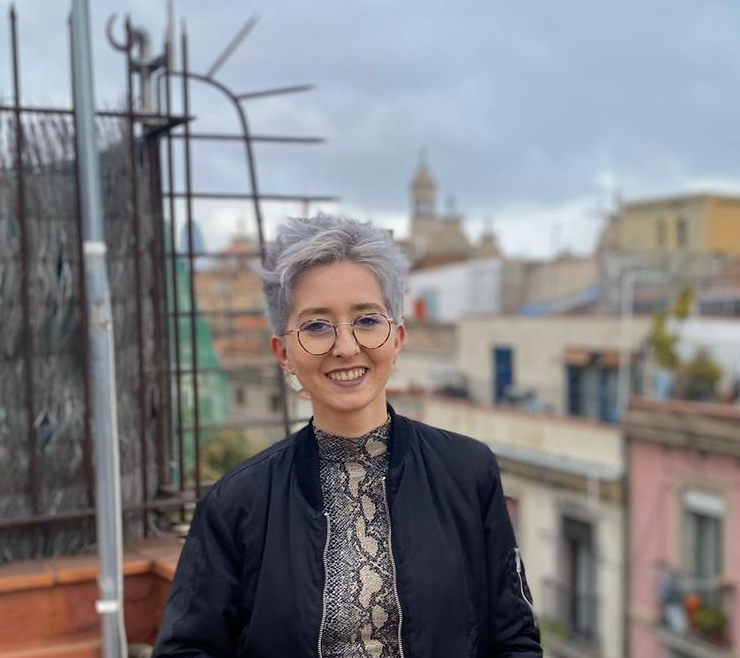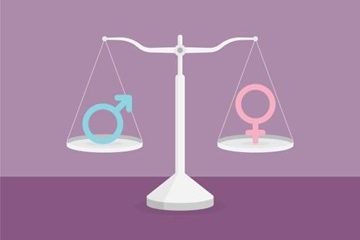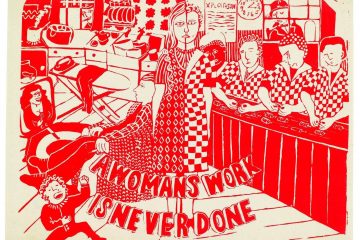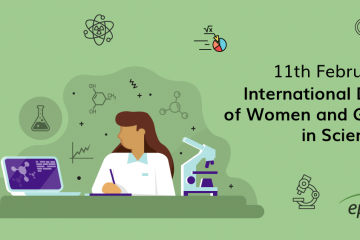THIS POST WAS ORIGINALLY WRITTEN IN SPANISH. THE ORIGINAL VERSION IS FOUND BELOW.
“In the face of atrocities we have to take sides. The neutral position always helps the oppressor, never the victim.” Elie Wiset
Today, November 25th, marks the International Day for the Elimination of Gender Violence, which is considered a serious public health problem and violation of human rights, as stated by the United Nations. This date was chosen in the first Latin American and Caribbean Feminist meeting, which took place in Colombia in 1981, in memory of the Mirabal sisters (Patria, Minerva and Maria Teresa), defenders of women’s rights, and murdered for their activism against the dictator of the Dominican Republic; Rafael Leonidas Trujillo.
Gender-based violence is a sexist act that causes physical, psychological and/or emotional harm, and in the most extreme cases, can result in murder. One out of every three women in the world has suffered physical and/or sexual violence from her partner or another man at some point in her life. There are many types of gender based violence, and they all have the same importance, because it is a discrimination suffered by millions of people in the world, just because they are women. There is economic violence (loss of resources) which is one of the most common in all countries, labor violence (difficulty in accessing positions of responsibility, glass ceilings, etc.. ), institutional violence (lack of access to public life, to certain policies…), psychological violence (degrading treatment with humiliation, harassment, manipulation…), physical violence (mistreatment with physical damage, pushing, bruising, burns…), sexual violence (harassment, exploitation, abuse, rape… inside or outside the couple), and symbolic violence (through the use of stereotypes that perpetuate these unequal relationships), which is one of the most difficult forms of violence to eliminate.
The most comprehensive report to date on women’s health has been published by the World Health Organization (WHO), and concludes that societies continue to fail women at critical moments in their lives. Although women make up more than 70% of health workers, they rarely receive the health care they need. The years of excess life expectancy that they experience are not usually accompanied by good health.
According to the United Nations, gender-based violence causes as much death and disability among women of reproductive age as cancer, and more than the combination of traffic accidents and malaria. Let’s start from where we can; our closest environment. Let us educate them equally, educating people of different genders in the same way, and demand collective actions such as a feminist education, in which boys and girls are treated in the same way, without gender stereotypes, based on difference. Let’s talk about care, emotional development and, free and healthy emotional relationships, moving away from the concept of romantic love that includes values such as possession, jealousy or domination vs. submission.
But in addition to educating boys to treat girls equally and without violence, it is also extremely important to make visible the different types of violence that exist so that the adolescents and women who are victims of such violence are able to recognize it. We know that only a minority of cases of gender violence are reported; we have to work to empower women to dare to raise their voices at the same time as a collective recognition of the situation of victims. However, these changes cannot depend on them alone, but must be reinforced by important judicial measures to ensure their safety, health and well-being. If, for example, we encourage women to report, and they continue to live with their abuser for years because of a judicial delay, we will be increasing the risk that they will suffer another episode of violence.
The annual report of UN Women (2019-2020), an organization dedicated to defending gender equality, includes concrete actions to implement and inspire practices from several countries. For example, in Tanzania, community dialogues with nearly 65,000 women emphasized the right to live safely; and 13,000 young people led initiatives against gender-based violence in their communities. It is very important to mobilize and unite voices to denounce violence; not only on March 8th or November 25th, but to integrate this thought into our lives.
After this disastrous year inundated with global health issues, and a brutal increase in gender violence in all countries of the world, now that we are creating a “new normal”, we have the opportunity to change things. Today, November 25th, begins the 16 days of activism against gender violence marked by the United Nations, under the slogan “Paint the World Orange: Finance, Respond, Prevent, Collect!
“LET’S NOT REBUILD A WORLD LIKE THE ONE BEFORE IT, LET’S PUT WOMEN AND GIRLS AT THE CENTER OF PLANS FOR A BETTER FUTURE. Dr. Phumzile Mlambo-Ngcuka, United Nations Under-Secretary-General and Executive Director of UN Women
Día Internacional de la Eliminación de la Violencia de Género
“Ante las atrocidades tenemos que tomar partido. La posición neutral ayuda siempre al opresor nunca a la víctima.” Elie Wiset
Hoy, día 25 de Noviembre se conmemora el Día Internacional de la Eliminación de la Violencia de Género, considerado un grave problema de salud pública y violación de los Derechos Humanos, como así lo constatan las Naciones Unidas. Esta fecha fue elegida en el primer encuentro Feminista Latinoamericano y del Caribe, que tuvo lugar en Colombia en 1981, en memoria de las hermanas Mirabal (Patria, Minerva y María Teresa), defensoras de los derechos de las mujeres, y asesinadas por su activismo contra el dictador de la República Dominicana; Rafael Leónidas Trujillo.
La violencia de género es un acto sexista que causa daño físico, psicológico y emocional, y en los casos más extremos, asesinato. Una de cada tres mujeres en el mundo han sufrido violencia física y/o sexual por parte de su pareja o de otro hombre en algún momento de su vida. Hay muchos tipos, y todos tienen la misma importancia, ya que se trata de una discriminación sufrida por millones de personas en el mundo por el único hecho de ser mujeres. Existe la violencia económica (pérdida de recursos), violencia de las más comunes en todos los países;, laboral (dificultad de acceder a puestos de responsabilidad, techos de cristal etc.), institucional (impedimiento del acceso a la vida pública, a ciertas políticas…), psicológica (trato degradante con humillación, acoso, manipulación…), física (maltrato con daño físico, empujones, hematomas, quemaduras…), sexual (acoso, explotación, abuso, violación… dentro o fuera de la pareja), y la violencia simbólica (a través del uso de estereotipos que perpetúan estas relaciones desiguales), la cuales una de las formas de violencia más difíciles de eliminar).
El informe más completo hasta la fecha sobre la salud de las mujeres ha sido publicado por la Organización Mundial de la Salud (OMS), y concluye que las sociedades continúan fallando a las mujeres momentos críticos de sus vidas. Y es que, aunque las mujeres constituyan más del 70% de las personas trabajadoras en el ámbito sanitario, pocas veces reciben ellas mismas la atención sanitaria que necesitan. Los años de exceso de esperanza de vida que experimentan, no suelen acompañarse de buena salud.
Según las Naciones Unidas, la violencia de género causa tanta muerte e incapacidad entre las mujeres en edad reproductiva como el cáncer, y más que la combinación de accidentes de tráfico y malaria. Comencemos desde lo que podemos; nuestro ambiente más cercano. Eduquemos igual las personas de distintos géneros, y demandemos acciones colectivas como una educación feminista, en que niños y niñas sean tratados de la misma manera, sin estereotipos de género basados en la diferencia. Hablemos de los cuidados, del desarrollo emocional y de las relaciones afectivas libres y saludables, apartando el ideal de amor romántico que incluye valores como la posesión, los celos o la dominación vs. sumisión.
Pero además de educar a los niños para tratar a las niñas con igualdad y en la no-violencia; es también de suma importancia visibilizar los distintos tipos de violencias existentes para que las adolescentes y mujeres que los estén sufriendo, sean capaces de reconocerlos. Sabemos que únicamente se denuncian una minoría de los casos de violencia de género; tenemos que trabajar para empoderar a las mujeres a que se atrevan a alzar la voz al mismo tiempo de un reconocimiento colectivo de la situación de víctimas Sin embargo, estos cambios no pueden depender únicamente de ellas, sino que han de verse reforzados por unas medidas judiciales importantes que garanticen su seguridad, su salud y su bienestar. Ya que, por ejemplo, si animamos a las mujeres a denunciar y siguen durante años conviviendo con el agresor por una demora judicial, estaremos aumentando el riesgo de que vuelvan a sufrir otro episodio de violencia.
El informe anual de ONU Mujeres (2019-2020), organización dedicada a defender la igualdad de género, recoge acciones concretas para poner en marcha y prácticas inspiradoras de varios países. Por ejemplo, en Tanzania, en diálogos comunitarios con casi 65.000 mujeres se enfatizó el derecho a vivir seguras; y 13.000 jóvenes encabezaron iniciativas contra la violencia de género en sus comunidades. Es muy importante movilizarse y unir voces para denunciar la violencia; no solo el 8 de Marzo o el 25 de Noviembre, sino integrar este pensamiento en nuestras vidas.
Tras este año tan nefasto en temas de salud global, y por un incremento brutal de la violencia de género en todos los países del mundo; ahora, que estamos creando una “nueva normalidad”; ahora, tenemos la oportunidad de cambiar las cosas. Hoy, 25 de Noviembre, empiezan los 16 días de activismo contra la violencia de género marcados por las Naciones Unidas, bajo el lema “Pinta el mundo de naranja: ¡Financiar, responder, prevenir, recopilar!” ¡Movilízate en la calle o en las redes con nosotras!
“NO RECONSTRUYAMOS UN MUNDO COMO EL ANTERIOR, COLOQUEMOS A LAS MUJERES Y LAS NIÑAS AL CENTRO DE LOS PLANES PARA UN FUTURO MEJOR.” Dra. Phumzile Mlambo-Ngcuka, Secretaria General Adjunta de las Naciones Unidas y Directora Ejecutiva de ONU Mujeres.




0 Comments